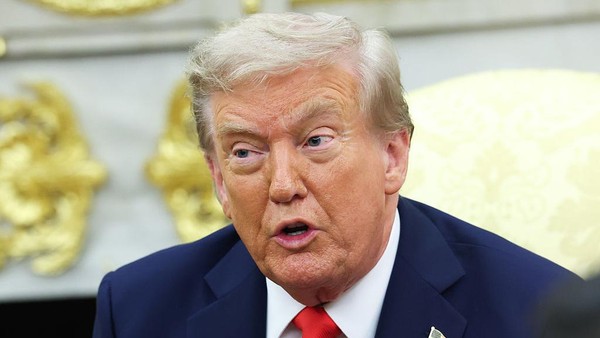seniorspectrumnewspaper – Donald Trump has defended the US government’s deal to acquire a 10% stake in Intel, dismissing critics as “stupid” for opposing the move. On Truth Social, Trump asked, “Why are ‘stupid’ people unhappy with that?”
Read More : Silent Hill f Revisits Origins with Time-Travel Twist
The Trump administration explains that the US stake in Intel is non-governing and non-voting. Its goal is to generate taxpayer returns while supporting a vital American chipmaker. The government is using $8.9 billion in pre-allocated federal funds for the purchase. This includes $5.7 billion from the US CHIPS and Science Act aimed at boosting domestic semiconductor production.
Trump claimed, “I PAID ZERO FOR INTEL, IT IS WORTH APPROXIMATELY 11 BILLION DOLLARS. All goes to the USA.” He suggested the government might seek similar stakes in other technology companies. He also emphasized his willingness to strike deals benefiting both the country and the companies involved.
Kevin Hassett, Director of the National Economic Council, echoed this on CNBC. He criticized past government funding that provided no return to taxpayers. “Now the US taxpayers are getting a little bit of equity,” he said. Hassett clarified the shares have no voting rights, and the government will not manage Intel’s operations.
The $8.9 billion investment aligns with US goals to strengthen domestic chip manufacturing amid global supply chain challenges. The administration hopes this will help Intel compete with international rivals like Taiwan’s TSMC and South Korea’s Samsung.
Critics Question Effectiveness and Risks of Government Stake in Intel
Despite official defenses, some experts and former Biden officials criticize the government’s equity stake in Intel. Senator Rand Paul condemned the deal as promoting “socialism” by involving the government in private industry.
Mike Schmidt and Todd Fisher, who previously worked at the CHIPS Program Office, argued in an op-ed that government ownership won’t fix Intel’s competitiveness. They noted Intel has successfully raised private capital, such as a recent $2 billion investment from SoftBank. They warned that taxpayer funds should not replace private investment.
The core problem, they say, is Intel’s struggle to secure orders for its advanced 18A chip process. Major customers like Apple, AMD, and Nvidia rely heavily on TSMC’s Taiwan-based manufacturing. If Intel’s next-generation 14A technology fails similarly, the company might halt new chip development. This could let TSMC and Samsung dominate the chip market.
Schmidt and Fisher emphasized that national security and supply chain resilience, rather than direct financial returns, justify government support. They warned against reliance on a single dominant chip supplier, which risks global disruption.
Read More : Elon Musk’s xAI Sues Apple and OpenAI Over Grok Rankings
Intel itself acknowledged risks in a stock exchange filing. The company said government ownership could bring additional regulations or restrictions abroad, including foreign subsidy laws.
The White House might also consider tariffs on foreign semiconductors to encourage use of Intel’s US factories, a move President Trump hinted at recently. Intel CEO Lip-Bu Tan stated that while the company doesn’t need government funds, it aims to collaborate with the US to “make Intel great again.”
Overall, the government’s investment represents a strategic effort to secure America’s semiconductor future, but it faces questions about market impact and long-term effectiveness.


